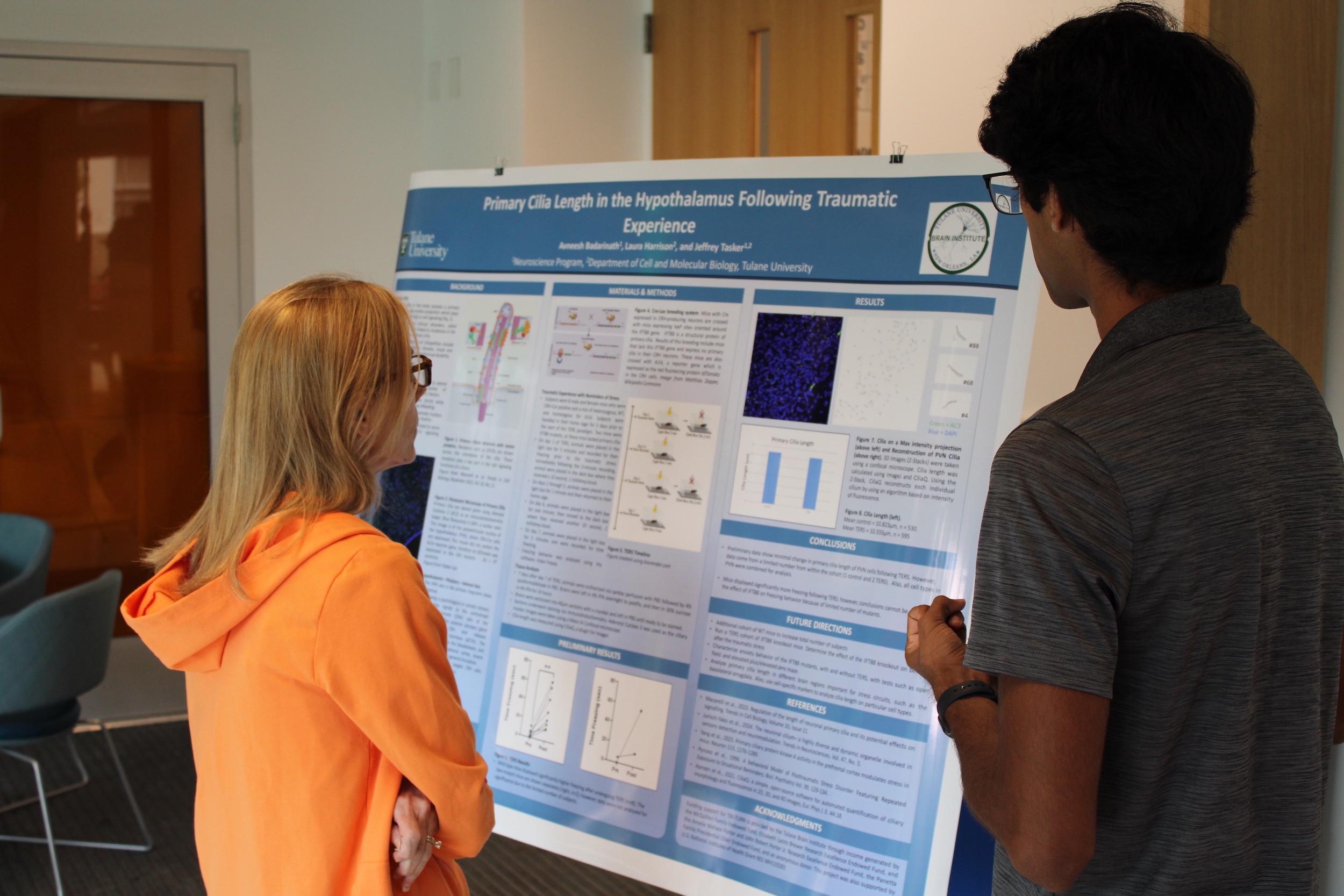Tulane Summer Neuroscience Program Gives Undergraduates Hands-On Research and Career Training
This summer, ten Tulane University undergraduates joined students from American University and Lebanon Valley College to participate in the Tulane Brain Institute’s TBI-TURN (Tulane Undergraduate Research in Neuroscience) program. Running from May 27 through July 25, the intensive nine-week experience gave students the opportunity to conduct hands-on research in faculty labs across six departments, while also engaging in weekly seminars focused on scientific communication and professional development.
Each Tuesday, students gathered to present their research and answer questions from peers, faculty, and mentors. Their projects covered a broad range of neuroscience topics—from infant social attention and neuroprotection to Alzheimer’s signaling pathways and trauma-related brain changes. Every student worked under the guidance of Brain Institute faculty, gaining firsthand experience in the process of scientific discovery.
The weekly meetings followed a two-part format: the first hour featured student presentations, while the second hour focused on professional development. These sessions offered students insight into both academic and non-academic career paths. Topics included fellowship applications, science policy, literature search strategies, and networking with scientists across sectors.
As the Director of the Tulane Brain Institute, Matthew Dalva, states, “The TURN program gives students the opportunity to work in a lab during the summer, it is always amazing to see the way that students capitalize on their opportunities with the fantastic posters and presentations they bring to the end of the summer event.”
Among the featured student presentations were:
• “Menopause, Hypertension, and the PVN” by Camille Fusselier (Schrader lab)
• “Traumatic Stress and the Brain” by Avneesh Badarinath (Tasker lab)
• “Dup15q Syndrome, Epilepsy, and UBE3A” by Katie Kurtz (Retife lab)
• “Diet, Microbiota, Cognition” by Aidan Leit (Oltiano lab)
The program concluded with a poster session on Thursday, July 24, in Paul Hall, where students shared their research with the broader academic community.
Through TBI-TURN, Tulane continues to demonstrate its commitment to undergraduate research and mentorship, equipping the next generation of neuroscientists with the tools to explore, question, and contribute to the field.

